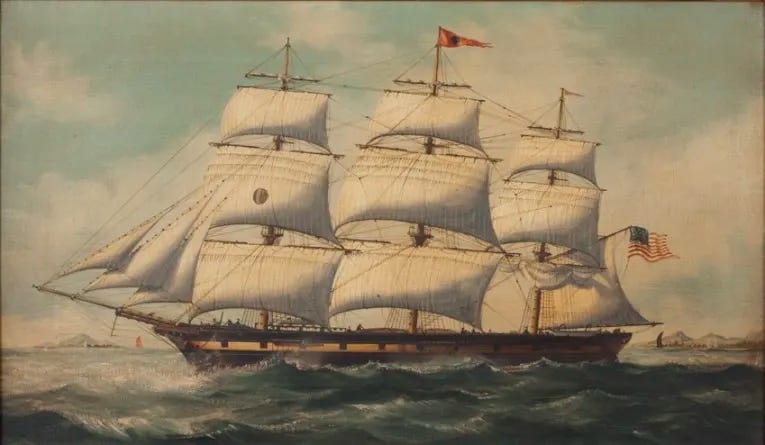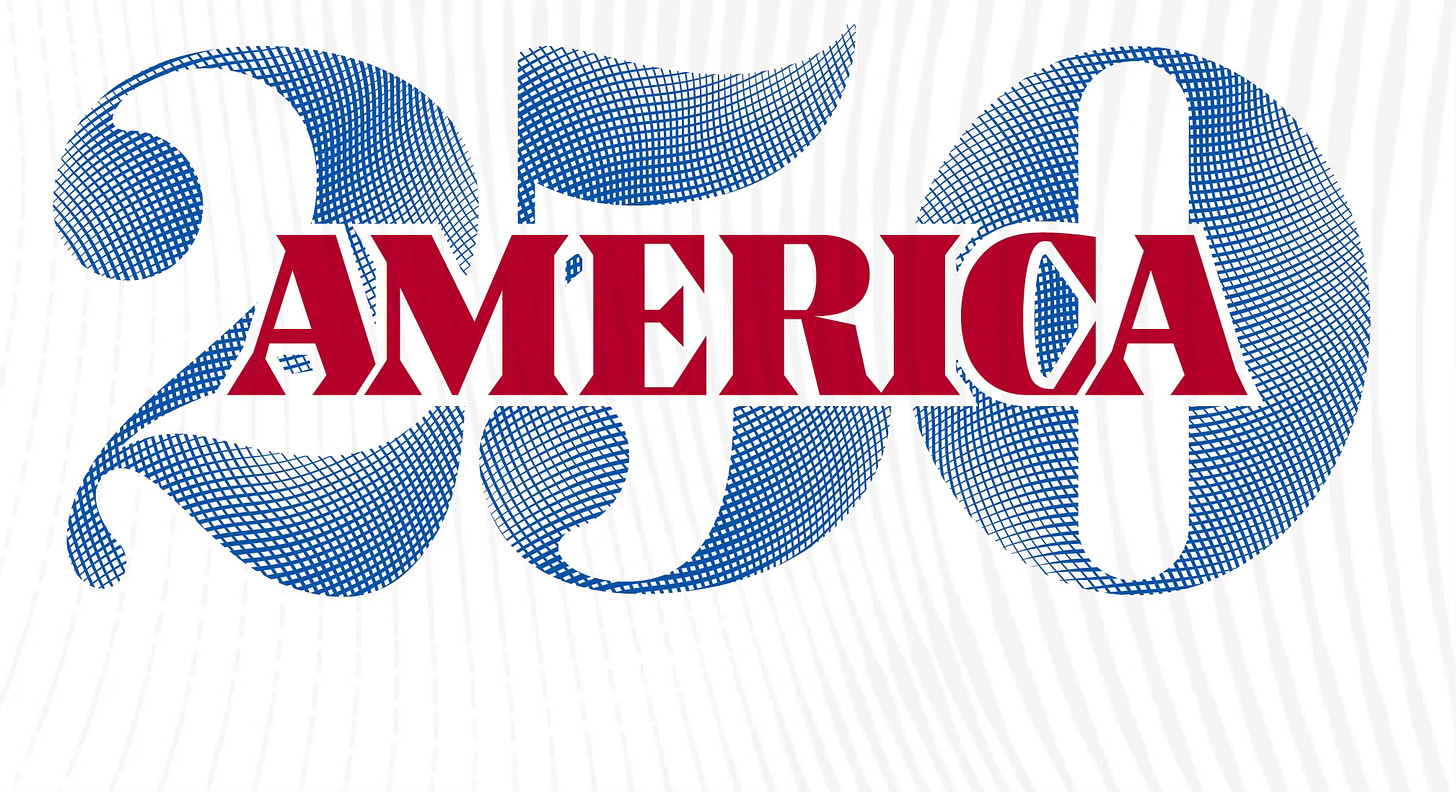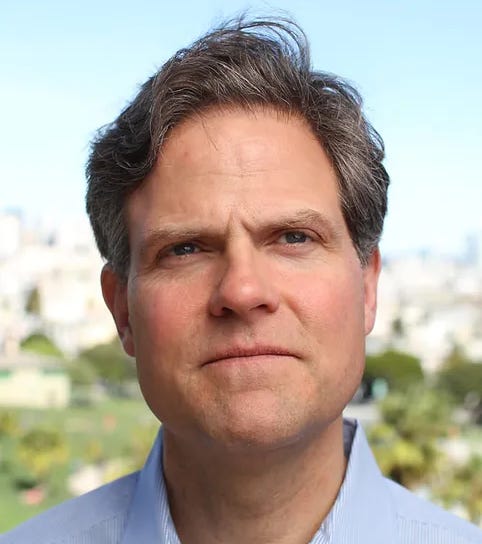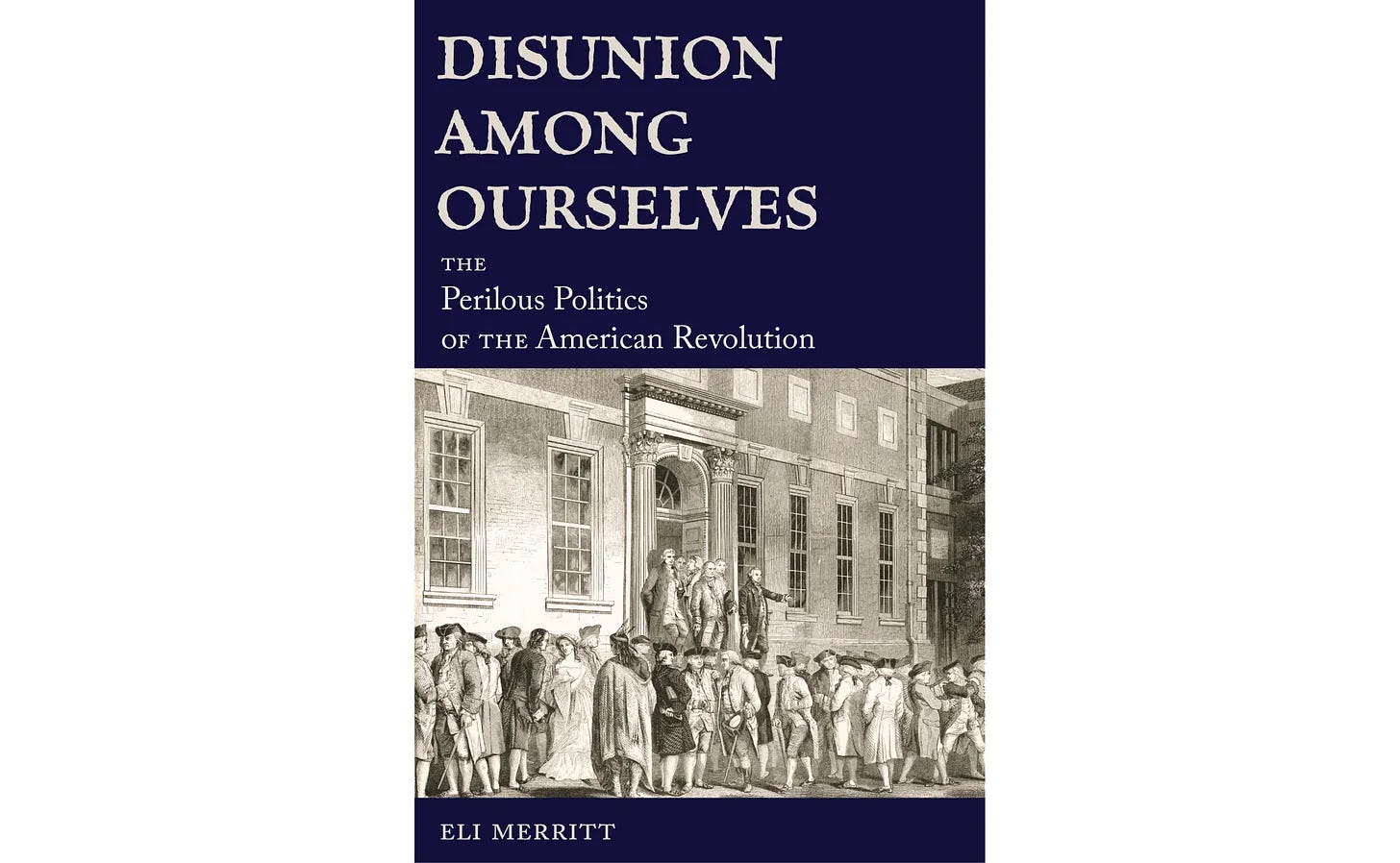The Greatest Lesson of American History
We must fight unflaggingly for our constitutional rights and freedoms
The story of the Revolution I am recounting is far from complete, but with the colonists’ victory over the Stamp Act in 1766, we have reached a stopping point—an interlude, an intermission.
Now let’s take stock of what we have learned thus far.
Strikingly, the Stamp Act opposition embodies the entirety of the American democratic lesson.
It’s a blueprint for citizen action, a model of democratic resistance we see reenacted repeatedly in the long arc of our history.
The American Experience
Here are only a few episodes of American resistance to injustice over the past 250 years that adopt the spirit and model of the Stamp Act fight:
The Boston Tea Party, the Declaration of Independence, and the War of Independence
The abolitionist movement, the women’s suffrage campaign, and the Civil War
The labor strikes of the 1930s, the Civil Rights Movement, and Vietnam War protests
The Equal Rights Amendment campaign, the push for marriage equality, and the Black Lives Matter movement
The #MeToo movement, the defense of voting rights, and the fight for reproductive freedom
The Stamp Act opposition embodies the entirety of the American democratic lesson
The citizen leaders of all these movements practiced the same arts of protest & petition; mass organizing & civil disobedience; and in many cases, like the civil rights movement, economic boycott.
All these principled fights for equality, of course, beg a crucial question.
What does it take for a people to stand up? What are the sources of the “fighting spirit” that have for so long empowered Americans to sustain the resistance, to persevere until justice is achieved?
‘A Hereditary Ardor for Liberty’
Democratic success is born of more than one thing, but it derives, above all, from the study of history.
History is how they did it—all of them, from John Dickinson and Ben Franklin to Susan B. Anthony, Elizabeth Cady Stanton, Alice Paul, Martin Luther King, and Rosa Parks to John Lewis, and Diane Nash.
They read history, debated history, and transmitted its lessons to the next generation, instilling it into their moral fiber.
In the words of John Adams, history bequeathed to them “a hereditary ardor for liberty.”
Former Yale president and scholar of American government, A. Whitney Griswold, once said that education was the “sine qua non” of democracy—and by that, he meant a liberal arts education with history at its core.
Democratic success is born of more than one thing, but it derives, above all, from the study of history
These activists and intellectuals knew their history. It endowed them with time-tested strategy, vigor, and creativity. It infused them with courage of conviction.
History taught our civic predecessors that it takes sweat, blood, and tears to secure and retain our inalienable rights and freedoms.
American Commonwealth is a reader-supported publication
Support for $50/year
*******
Eli Merritt is a political historian at Vanderbilt University and the author Disunion Among Ourselves: The Perilous Politics of the American Revolution
Public Lectures
America’s 250th Anniversary: Forging Unity Through History
Why Democrats Should Reclaim the American Founding
How to Talk About the 'Fourth of July'
More Articles by Eli Merritt
Books by Eli Merritt
Book Sources
In the University Tradition, Alfred Whitney Griswold
The American Spirit: Who We Are and What We Stand For, by David McCullough
Online Sources
Take the Next Step
Gift a subscription to a friend or family member
Share, Like, Comment, or Restack below:








Eli, have you seen the movie "Number 24" on Netflix? It's based on a true story that starts out with an old man speaking to an audience of young people about his experience as an exceptional young leader in the Norwegian resistance in World War II. Speaking to his young audience, the old man said something like (I'm paraphrasing), "We thought we were living in a post-war world. The truth turned out to be that we were living in an inter-war period." That's truly timeless wisdom.
Valuable lessons! Thank you! I live not far from the Truman Presidential Library and Museum in Independence, Missouri. It includes a mock-up of Truman's office/library, which had on the wall a sign that said, "Not all readers are leaders, but all leaders are readers."